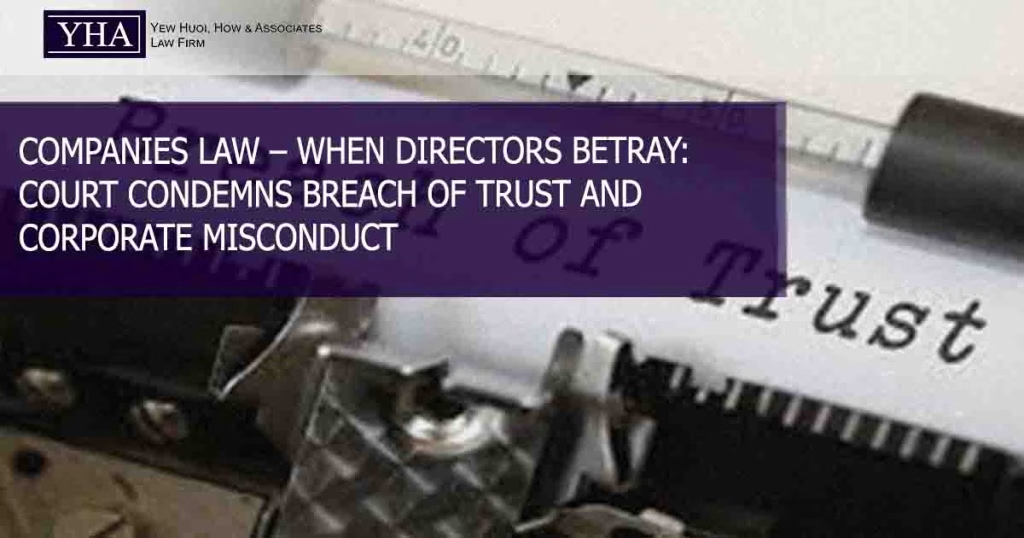Summary and Facts
A (the plaintiff) was a profitable company positioned for growth following a significant acquisition by its parent company. B (the defendants), who were directors and shareholders of A, had the responsibility to manage the company in its best interest. However, B established C (a competing company), owned by B’s family, and executed a calculated plan to divert A’s assets, business opportunities, and employees to C
Despite their obligations, B orchestrated these actions while still serving as directors of A, ultimately resigning after dismantling A’s operations. Their actions left A unable to operate, resulting in severe financial harm and legal action against B.
Legal Issues
- Whether the directors breached their fiduciary duties?
- Whether there was a conspiracy to harm the plaintiff company?
- Whether the defendants were unjustly enriched at the plaintiff’s expense?
- Whether the assets of the competing company were held on constructive trust for the plaintiff?
- Whether the defendants’ actions breached contractual obligations?
Court Findings
- The court found that the directors breached their fiduciary duties by diverting assets, employees, and business opportunities to a competing company they controlled. This conduct clearly failed to serve the best interests of the original company.
- The directors acted together in a deliberate and systematic plan to harm the company. Their actions were intended to dismantle the business and benefit their new company.
- The court held that the defendants unjustly profited from the company’s assets and opportunities, wrongfully diverted for personal gain.
- The assets transferred to the competing company were deemed to be constructively held on trust for the original company, ensuring that diverted resources were accounted for and not unjustly retained.
- The directors breached terms of the shareholder and acquisition agreements by failing to support the company’s growth, instead diverting critical resources.
- The court awarded exemplary damages, finding that the defendants’ actions were egregious enough to warrant punishment and deter future misconduct.
- The court recognized that the plaintiff was left incapacitated by the defendants’ actions, limiting its ability to mitigate losses. Thus, the defendants were held fully accountable for the financial harm caused.
Reference Case
- Taz Logistics Sdn Bhd v Taz Metals Sdn Bhd & Ors [2019] 3 MLJ 510

